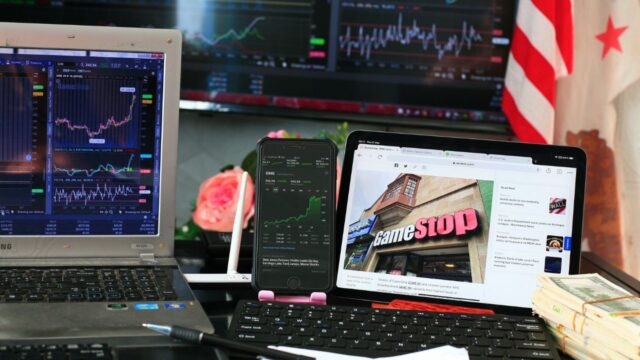
The recent events surrounding GameStop and Wall Street have sparked a lot of interest and confusion among people, particularly those who are not familiar with trading and investing. One of the terms that have become part of the mainstream vocabulary due to this controversy is “shorting a stock.” While it seems like a complex concept, especially for non-finance-savvy individuals, it’s actually straightforward to understand. In this blog post, we will delve deeper into what shorting a stock means and how it affects the stock market.
First, let’s define what a stock or equity is. A stock is a share in the ownership of a company or corporation. When you purchase a stock, you’re buying a piece of the company, and you’re essentially investing in their business operations. If the company grows and becomes profitable, your shares’ value increases, and you can sell them for a profit.
Shorting a stock, on the other hand, involves borrowing shares of a company’s stock from someone else and then selling them in the market with the hope that the price will fall. The goal is to wait for the stock price to drop and then buy back the same amount of shares and return them to the lender while making a profit.
Let’s explain this with an example: Let’s say that you borrowed 100 shares of a company’s stock with a current market value of $50 per share, totaling $5,000. You then sell those shares in the market, and the company’s stock price drops to $30 per share. You decide to buy back those 100 shares at $30 per share, costing you $3,000. You return the shares to the lender and pocket the difference of $2,000.
The problem with shorting a stock is that there’s no limit to how high the stock price might go. If you short a stock today and it suddenly rises in price tomorrow, you will lose money. The lender can also ask for the shares to be returned at any time, which is called a short squeeze, often leading to a rapid increase in demand and driving up the stock prices.
Conclusion: Understanding the basics of shorting a stock is essential, especially if you’re contemplating investing in the stock market. It provides a clear picture of the risks involved and the potential gains and losses. The recent events surrounding GameStop have demonstrated the power of collective action among individual investors, and it has opened up a new discussion about the fairness of the stock market. While it’s challenging to predict what would happen next, it’s always essential to have the proper knowledge and resources when making investment decisions.


































